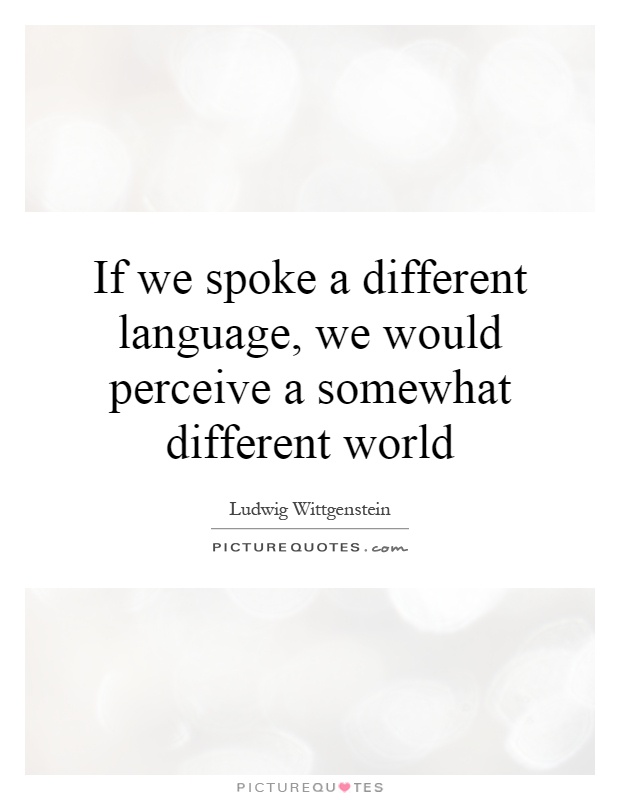If we spoke a different language, we would perceive a somewhat different world

If we spoke a different language, we would perceive a somewhat different world
Ludwig Wittgenstein, a renowned Austrian-British philosopher, is often associated with the idea that language shapes our perception of the world. His famous quote, "If we spoke a different language, we would perceive a somewhat different world," highlights the profound impact that language has on our understanding of reality.Wittgenstein believed that language is not just a tool for communication, but also a framework through which we interpret and make sense of the world around us. Different languages have unique structures, vocabularies, and grammatical rules that influence how we think, reason, and perceive reality. For example, languages that have specific words for concepts that are not present in other languages can shape the way speakers of those languages think about and interact with those concepts.
In his seminal work, the "Philosophical Investigations," Wittgenstein explores the relationship between language and reality, arguing that language is not a mirror of reality but a complex system of rules and conventions that shape our understanding of the world. He famously stated that "the limits of my language mean the limits of my world," suggesting that our ability to express and articulate our thoughts is constrained by the language we use.
Wittgenstein's ideas have profound implications for how we understand and interpret different cultures, societies, and worldviews. By recognizing the role of language in shaping our perception of reality, we can develop a greater appreciation for the diversity of human experience and the ways in which language influences our understanding of the world.












 Friendship Quotes
Friendship Quotes Love Quotes
Love Quotes Life Quotes
Life Quotes Funny Quotes
Funny Quotes Motivational Quotes
Motivational Quotes Inspirational Quotes
Inspirational Quotes